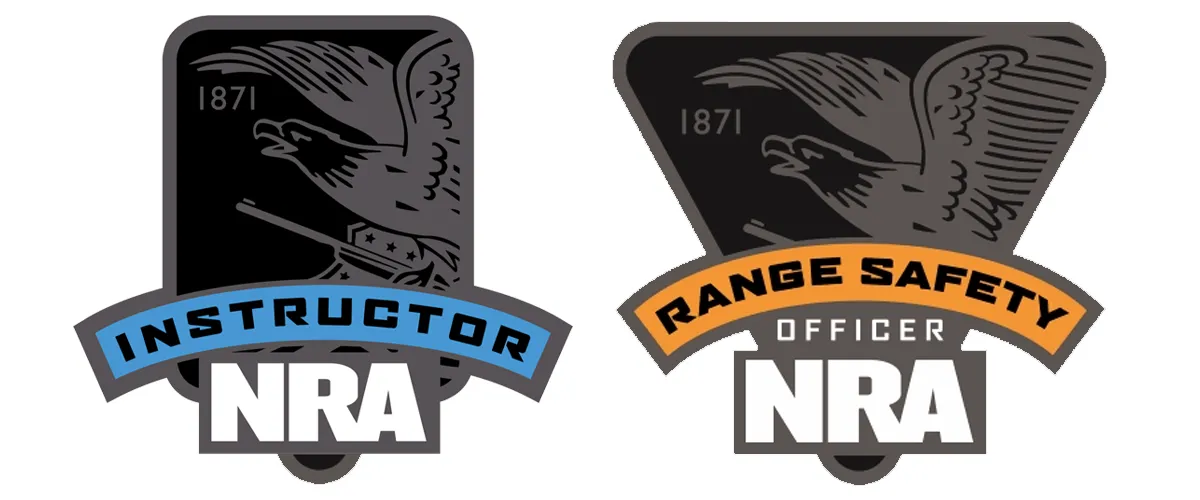
FIREARMS TRAINING
WITH YOUR PEACE IN MIND
FIREARMS SAFETY & INSTRUCTION COURSES

ETA Firearms is your go-to choice for gun safety classes in Arizona. We also educate for concealed weapon permits, tactical training and more.
Firearms safety courses teach important safety practices and procedures to help prevent accidents and injuries when handling firearms. Being knowledgeable and trained in safe handling techniques can help reduce the risk of accidental discharges and injuries to yourself and others.
NRA CERTIFIED INSTRUCTORS
USCCA CERTIFIED INSTRUCTORS
WOMEN INSPIRED COURSES
ACTIVE SHOOTER TRAINING
FIRST AID COURSES
CONCEALED CARRY WEAPONS
REAL ESTATE AGENT SAFETY
LED CLASSES
It's not only about the novelty of shooting or owning a "gun". It's about our obligation to protect and freely exercise our 2nd Amendment right. We offer a variety of courses created by licensed instructors that teach respect, safety, responsibility and the legal requirements necessary to own and possess a personal firearm in Arizona.



OUR TRAINING COURSES & CLASSES
Taking a firearms safety course is an important step in being a responsible firearms owner and protecting your assets, yourself, and others. It can help you develop the knowledge, skills, and mindset necessary to safely and confidently handle firearms in a variety of situations.
NEW GUN OWNER TRAINING PROGRAM
1:1 & GROUP TRAINING AVAILABLE
SPECIALTY CLASSES & COMBO COURSES
WOMEN ONLY COURSES
CUSTOM CREATED COURSES & GROUPS
Schedule a free consultation here:
Stay Informed Through our Blog

Securing Finances: Safeguarding Donations and Financial Transactions in Religious Institutions and Enterprises

Religious institutions and enterprises often rely on donations and financial transactions to support their operations and mission. As such, it is crucial for these organizations to prioritize the security of their finances in order to protect the integrity of their work and maintain the trust of their donors.
Here are a few key strategies that religious institutions and enterprises can employ to safeguard their donations and financial transactions:
1. Implement strong internal controls: Establishing robust internal controls is essential for preventing fraud and ensuring the responsible handling of funds. This includes segregating duties among different staff members, regularly reviewing financial records, and implementing procedures for approving and tracking expenses.
2. Conduct regular audits: Regular internal and external audits can help identify any financial irregularities or weaknesses in the organization's financial processes. These audits should be conducted by independent, third-party firms to ensure impartiality and accuracy.
3. Use secure online donation platforms: Many religious institutions and enterprises receive donations online, making it crucial to use secure payment processing platforms that comply with industry standards for data security. Organizations should also implement appropriate safeguards to protect donor information and prevent unauthorized access to sensitive financial data.
4. Educate staff and volunteers on financial best practices: Training staff and volunteers on financial management and best practices can help prevent errors and ensure compliance with legal and regulatory requirements. This includes providing guidance on proper recording keeping, handling cash and checks, and maintaining transparent financial reporting.
5. Monitor financial transactions: Religious institutions and enterprises should regularly monitor their financial transactions to detect any unusual or suspicious activity. This includes reviewing bank statements, reconciling accounts, and conducting regular audits of financial records.
By implementing these strategies and prioritizing the security of their finances, religious institutions and enterprises can safeguard their donations and financial transactions, protect their reputation, and instill confidence in their donors and supporters.
Monday through Sunday
By appointment only
Copyright © 2024 E.T.A. FIREARMS | All Rights Reserved





